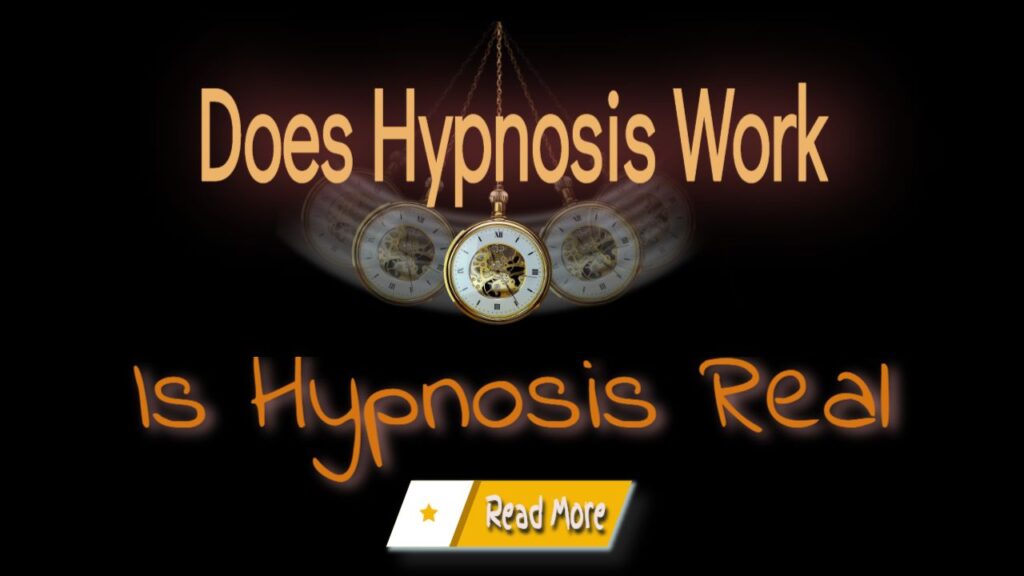Delve Into the Fascinating World of Hypnosis
- Discover the Truth About Hypnosis: Answers to 16 Common Queries
- What is Hypnosis? A Comprehensive Definition
- Hypnosis vs. Hypnotherapy: Understanding the Key Differences
- How Hypnosis Works: Unraveling the Mechanisms Behind It
- Brain Activity During Hypnosis: What Happens Inside Your Mind?
- The Therapeutic Uses of Hypnosis: Conditions it Can Address
- Debunking Myths: Control and Hypnosis – Essential Insights
- Myth-Busting: Is Hypnosis Just a Form of Sleep?
- Truthfulness Under Hypnosis: Can You Be Deceptive?
- Is Hypnosis a Valid Practice? Dispelling Common Misconceptions
- Top 8 Myths About Hypnosis: Get Educated
- Experience Hypnosis: Participate in Online Video Sessions
- Myth Busting: Hypnosis and Mental Fortitude – The Real Story
Understanding the Reality of Hypnosis
Many individuals are curious about the effectiveness of hypnosis. Skepticism often arises from widespread misconceptions and myths that distort the reality of this practice. To clarify, we will address some frequent questions that come up in conversations about hypnosis:
1. How long will I be under hypnosis?
2. Can I be compelled to act against my own will?
3. Will I remember what happened during the hypnosis?
4. Am I aware of my surroundings while in a hypnotic state?
Editor’s Note: According to Scientific American Mind, hypnosis is a legitimate phenomenon with a broad range of therapeutic applications, particularly in pain management. The stereotypical portrayal of hypnosis—often depicted with a hypnotist swinging a pocket watch—contributes to misunderstanding. In truth, hypnosis can create a focused state of awareness that promotes significant psychological and emotional healing.
If you have thought about the potential benefits of hypnotherapy but are still unsure about its effectiveness, you might have encountered self-hypnosis audio products. While these can be budget-friendly, many people question their actual efficacy. Can pre-recorded hypnosis sessions genuinely help you achieve your objectives?
Whether you choose a live session with a trained professional or opt for pre-recorded audio sessions, the desired outcomes are fundamentally the same. Some experts suggest that listening to a hypnosis recording can closely mimic the experience of being in a therapist’s office, with the main difference being the facilitator’s role in guiding you toward your intended state.
Despite the established effectiveness of hypnosis in numerous contexts, researchers are still uncovering the complex ways it interacts with the brain. This ongoing exploration raises questions about the precise mechanisms through which hypnosis delivers its benefits. Generally, hypnotherapy involves several shared elements, customized to cater to individual needs.
Informed Consent and Collaborative Engagement: A vital component of collaborating with a hypnotherapist is the establishment of a trusting relationship. This process often starts with a conversation to explore the potential risks and benefits associated with hypnosis, ensuring informed consent prior to proceeding with treatment.

What Is Hypnosis? A Comprehensive Definition
When working with clients during significant life transitions—such as starting a new job or coping with the aftermath of a major loss—it often becomes clear how they perceive hypnosis. Many are taken aback when I propose hypnosis as an effective method for addressing feelings of being stuck or processing trauma. They often imagine a dramatic scenario where they fall into a deep trance and forget their experiences—a narrative that is frequently sensationalized in media portrayals. This misconception raises ethical concerns in therapeutic settings and is not particularly useful. Instead, my approach emphasizes a more engaging and imaginative process, where clients either maintain full awareness or enter a light trance state.
Hypnosis serves as a powerful instrument for managing and treating a wide array of conditions. Under the guidance of a certified hypnotist or hypnotherapist, individuals can enter a profound state of relaxation, often referred to as a trance-like state. In this altered state of consciousness, the practitioner may introduce suggestions aimed at encouraging openness to change and facilitating therapeutic progress. Experiencing trance states is more common than one might think; for example, if you’ve ever become completely absorbed in a movie or lost in thought during a daydream, you’ve already experienced a similar hypnotic state.
To further elucidate, it is vital to clarify what hypnosis is not. Contrary to its dramatic representation in films and television—often highlighting exaggerated scenarios—authentic hypnosis is a more ordinary yet profoundly effective process rooted in natural psychological mechanisms.
Hypnosis vs. Hypnotherapy: Understanding the Key Differences
Authentic hypnosis, or hypnotherapy, differs significantly from the theatrical performances typically associated with stage hypnosis. In a therapeutic context, the duration and structure of sessions are largely determined by individual circumstances and the specific issues being addressed. For instance, some clients seeking hypnosis for smoking cessation might only need a single session lasting up to two hours, whereas others facing more complex challenges may benefit from ongoing weekly sessions. Your hypnotherapist will clarify the estimated number of sessions required while remaining flexible to your evolving needs throughout the therapeutic experience.
Throughout the hypnotherapy process, a trained professional guides you into a state of heightened concentration or focused attention through verbal prompts and repetition. While this trance-like state may share some characteristics with sleep, you remain fully aware of your surroundings and retain control over your actions.
Self-hypnosis is another avenue for individuals to explore, but it can raise safety concerns, particularly for those practicing alone. One common fear is the idea of becoming “stuck” in a trance, which can be especially distressing for individuals who live alone. However, it’s crucial to understand that you can exit a trance at any moment you choose. Self-hypnosis poses risks only if practiced in unsafe conditions, such as while driving or operating heavy machinery. Ideally, hypnotherapy should take place in a secure, comfortable environment, whether at home or in a therapist’s office.
At its core, hypnotherapy integrates practice with belief. It does not rely on mystical rituals or specialized substances. While aspects of science, psychology, and philosophy play significant roles within society, they do not define hypnotherapy. Instead, hypnotherapy represents a unique blend of science, trust, and discipline, utilizing the inherent power of the subconscious mind that resides within each individual, ready to facilitate meaningful change.
How Hypnosis Works: Unraveling the Mechanisms Behind It
My training in a technique known as depth hypnosis, developed by Isa Gucciardi, combines elements of transpersonal psychology, shamanism, Buddhism, and hypnosis to create a powerful healing approach. I have successfully applied this methodology to help clients overcome various challenges, including anxiety, panic attacks, depression, procrastination, and trauma, among others.
Hypnosis can be described as a heightened state of suggestibility, allowing individuals to reprogram their minds and bodies for success. This integrative process facilitates the reconstruction of habits, behaviors, emotions, beliefs, and feelings. Have you ever found yourself completely immersed in an activity, losing track of your surroundings? This state of immersion resembles a natural trance. Common examples of this include being engrossed in a film or working intensely, only to suddenly realize that several hours have elapsed without your conscious awareness.
In collaboration with your hypnotherapist, you engage as partners in the journey. The therapist is not a manipulative entity trying to exert control but a supportive ally committed to helping you address your specific issues. During most hypnosis sessions, clients remain alert and aware of the process, with the opportunity to ask questions and gain insight into the theory of hypnosis. Furthermore, hypnosis will not transport you to an alternate reality or subject you to unwanted experiences against your will.
For those interested in a deeper understanding of hypnosis, I encourage you to read extensively about both stage hypnosis and its clinical applications. Gaining familiarity with the historical context and mechanisms of hypnosis will enhance your comprehension and appreciation of this intriguing practice.
Brain Activity During Hypnosis: What Happens Inside Your Mind?
The human brain constantly generates electrical activity, transmitting various wavelengths throughout the day, even while sleeping. However, it’s crucial to recognize that hypnosis is distinctly different from sleep. The brain operates through four primary stages of brainwaves:
– Beta waves – This state represents full wakefulness, where you are aware of your environment and engaged in active thought. As you read this article, you are likely in the beta stage.
The key to hypnosis lies in accessing your subconscious mind and effectively “rewriting” your automatic scripts. This process guides your thoughts along new, positive pathways, liberating you from the destructive patterns that may be hindering your progress. In the field of neuroscience, this phenomenon is known as neuroplasticity, highlighting the brain’s remarkable ability to adapt and change. Positive affirmations and suggestions presented during hypnosis sessions are embedded within the subconscious mind, leading to transformative changes in thought patterns and behavioral responses in daily life, ultimately empowering you to adopt healthier self-care practices.
It’s a common misconception that individuals under hypnosis lose control. In fact, we all experience varying depths of hypnosis daily. Instances of daydreaming or becoming engrossed in an engaging television show are examples of natural trance states. During these moments, emotional responses can be triggered, such as feeling excitement or anxiety during thrilling scenes. The brainwave patterns observed in deep meditation align with the theta trance state, further illustrating the mind’s capacity for focused engagement.
Hypnosis has a rich history in healing practices, often drawing parallels to the placebo effect. As noted in a Harvard University article by Professor Ted Kaptchuk, simply engaging with a suggested treatment—even when you know it’s not a conventional medicine—can stimulate the brain to perceive healing, underscoring the profound connection between the mind and body.

Therapeutic Uses of Hypnosis: Conditions it Can Address
It is crucial to differentiate between the entertainment aspect of hypnosis and its clinical applications for therapeutic benefits. The phenomenon of stage hypnosis primarily aims to amuse an audience by guiding willing participants into entertaining behaviors or stunts under the direction of a hypnotist. Typically, these participants have consumed alcohol and willingly engage in the performance for enjoyment.
During the majority of clinical hypnosis sessions, clients remain alert and engaged, actively participating in the therapeutic process. They are educated about the principles of hypnosis and have a platform to express any questions or concerns, fostering an atmosphere of transparency and collaboration.
You retain complete control over your body during hypnosis. Contrary to the assumptions made by stage hypnosis, you are aware of your actions and the requests made of you. If a suggestion makes you uncomfortable, you have the right to decline, demonstrating the autonomy you maintain throughout the experience.
One widespread myth is that individuals lose control of their bodies when hypnotized. In contrast, clients often leave sessions equipped with practical strategies and techniques to implement changes in their lives, fostering self-empowerment and personal growth. Numerous resources are available online, including options for free weight loss hypnosis and techniques to overcome various challenges through hypnotherapy. Once you grasp the fundamentals of hypnosis, you can effectively tap into its potential for positive change.
Is Hypnosis Just Sleeping? Debunking the Sleep Myth
Hypnosis is a mental state that individuals encounter regularly, often at least twice a day. Historically, hypnosis has been acknowledged as a state of consciousness since ancient civilizations, including Egypt and Greece. The term itself is derived from Hypnos, the Greek god of sleep, which has contributed to the widespread misconception that hypnosis equates to sleep. However, this could not be further from the truth.
A multitude of myths and misunderstandings about hypnosis have proliferated, often fueled by sensationalized representations in various media. This information aims to clarify the nature of hypnosis and dispel common misconceptions. A fundamental truth is that, contrary to popular belief, everyone has the capacity to be hypnotized, as it is a natural state of consciousness experienced by all individuals multiple times a day—during moments of awakening and sleep, as well as when deeply engrossed in a movie or other captivating activities.
The entertainment industry has significantly influenced the public’s perception of hypnosis, leading to prevalent misconceptions about its true nature. A recurring myth is that individuals under hypnosis are either asleep or unconscious. In reality, those in a hypnotic state are often more alert than ever; heightened awareness characterizes all stages of hypnosis, increasing receptivity to suggestions and therapeutic interventions.
Can You Lie While Hypnotized? Understanding Truthfulness Under Hypnosis
While hypnosis has shown efficacy in managing pain, stress, and anxiety, it is important to recognize that cognitive behavioral therapy remains the preferred treatment for these conditions. Hypnosis is often integrated into holistic programs aimed at smoking cessation or weight management; however, it may not be suitable for everyone. For instance, individuals who find it difficult to enter a hypnotic state might experience limited effectiveness. Research indicates that those who are more easily hypnotized tend to derive greater benefits from the process.
Over the years, many have sought hypnosis to recover lost items or memories. In many cases, I have successfully assisted clients in locating misplaced belongings. Academic literature supports the idea that hypnosis can enhance memory retention, with numerous studies indicating significant improvements in recall among hypnotized individuals compared to control groups.
Regarding eligibility for hypnosis, most individuals can be hypnotized, with exceptions including those with an IQ below 70, individuals experiencing psychosis, and many elderly individuals suffering from cognitive decline. You may have seen hypnotists perform on stage or in films, where participants engage in entertaining and humorous acts. Such performances often create a perception of hypnosis as a mere trick or illusion.
Unlocking the Possibilities: Can Anyone Be Hypnotized?
If you are open to the experience, you can likely be hypnotized. Hypnosis techniques can be both overt and covert, and I utilize both approaches while always respecting the client’s preferences. Some individuals may find the process more challenging than others, making covert methods more suitable. Many wonder if they can practice self-hypnosis effectively, and the answer is yes. Self-hypnosis is a skill that can be learned with practice.
Is Hypnosis Real? Dispelling Myths Surrounding Its Authenticity
The numerous myths and misconceptions about hypnotherapy often stem from misunderstandings related to stage hypnosis. In reality, stage hypnosis primarily serves as a theatrical performance and bears little resemblance to genuine clinical hypnosis, which is grounded in therapeutic principles and practices.
Consider the everyday trance states experienced while daydreaming or being captivated by a film; these instances illustrate how immersive imaginary events can evoke genuine emotions such as fear, joy, or sadness. Some researchers categorize these experiences as forms of self-hypnosis, as Milton Erickson, a renowned authority in hypnosis, suggested that individuals hypnotize themselves daily. Nonetheless, most psychiatrists focus on achieving trance states through intentional relaxation and concentration techniques.
Hypnosis is a natural phenomenon with no inherent risks. You cannot be coerced into actions or beliefs that contradict your values, nor can you become “stuck” in a hypnotic state. The entertaining portrayals of hypnosis in media often lead to exaggerated beliefs and fears. For further clarification on the various myths and misconceptions surrounding hypnosis, explore other sections of our website, where you can find accurate information to dispel these widespread misunderstandings.
Understanding suggestion in the context of hypnosis is critical; it refers to the subconscious acceptance of an idea. Mastering the art of suggestion is essential for success in hypnosis. The process of inducing a hypnotic state and maintaining control relies heavily on effective suggestions. The more familiar you become with the subconscious mind and the principles governing suggestion, the more adept you will be in harnessing the power of hypnosis.

Dispelling Common Misconceptions About Hypnosis
Unsurprisingly, numerous myths surround hypnosis, primarily stemming from media portrayals in fictional works, as noted by Irving Kirsch, a lecturer and director of the placebo studies program at Harvard Medical School. However, beyond pop-culture clichés, hypnosis is a well-researched and legitimate form of adjunctive therapy for various conditions, including obesity, postoperative pain, anxiety, and stress management.
The divergence between entertainment and clinical hypnosis is considerable. Understanding what hypnosis truly entails is essential to gaining an accurate perspective on its effectiveness as a therapeutic approach. If you have a strong apprehension about hypnosis, consider visiting my page dedicated to addressing the fear of being hypnotized, which clarifies many misconceptions surrounding this practice.
It is a misconception that individuals cannot lie while under hypnosis. The truth is that a person can fabricate stories or respond with exaggerated claims due to the heightened imaginative state induced by hypnosis. One popular stage hypnosis routine, titled “The World’s Greatest Liar,” exemplifies this concept, where participants are encouraged to respond with the most elaborate lies their imagination can conjure.
Experience Hypnosis: Participate in Online Video Sessions</strong
Comments are closed


This exploration of hypnosis is so timely and important, especially given the many misconceptions surrounding it. I frequently encounter skepticism from friends when the topic arises. They often equate hypnosis with a theatrical or mystical experience, thinking of it as something out of a movie where a person falls under someone else’s control. It’s refreshing to see a nuanced discussion that demystifies these misunderstandings.
It’s a tricky topic for sure. A lot of people just can’t shake off those Hollywood ideas of hypnosis as some sort of mind control, right? It’s interesting how those dramatic portrayals can stick with us and influence how we view something that’s actually pretty grounded in psychology.